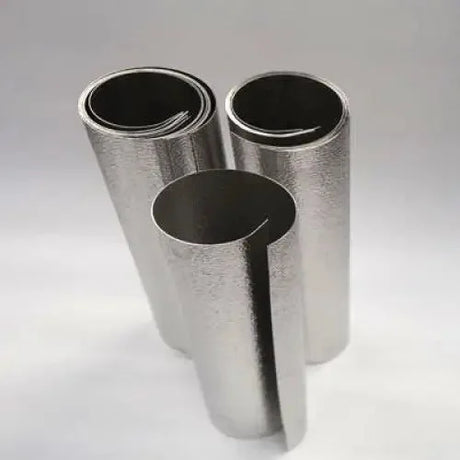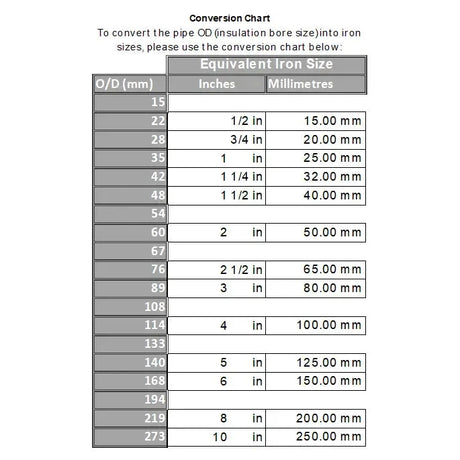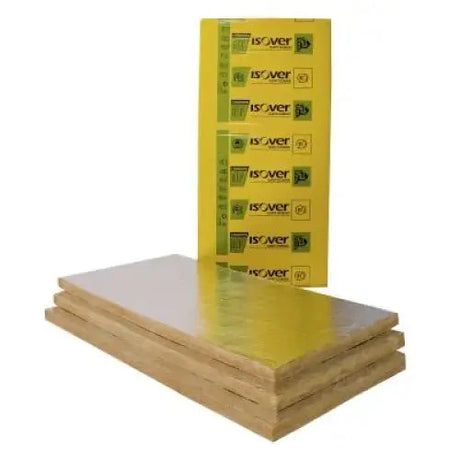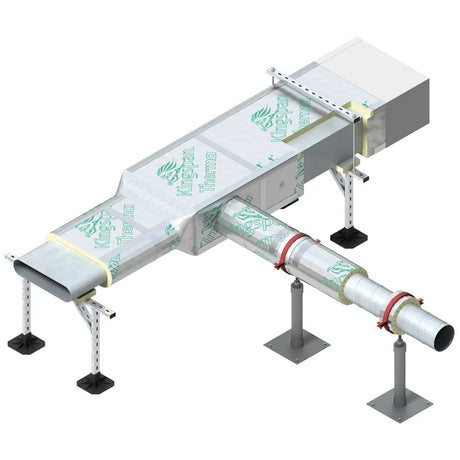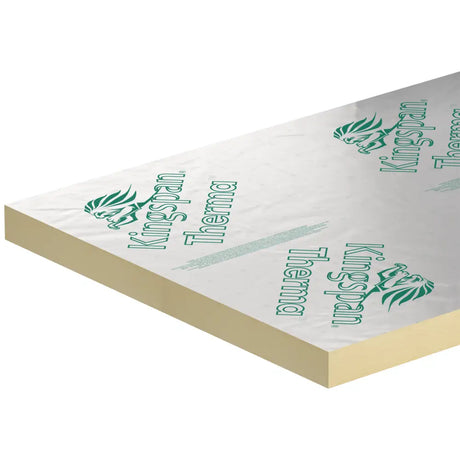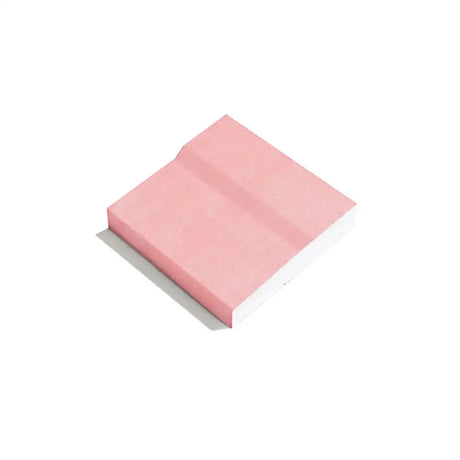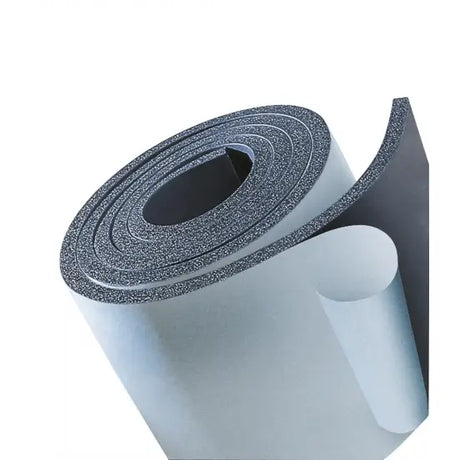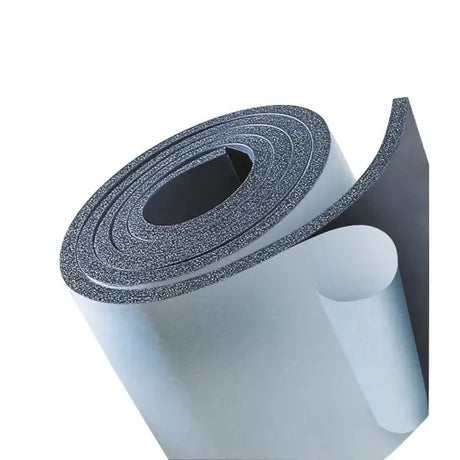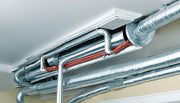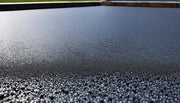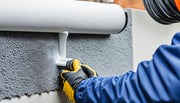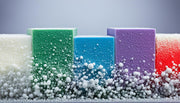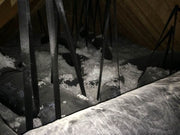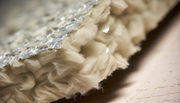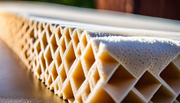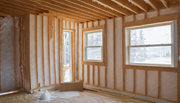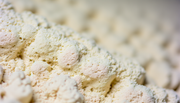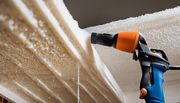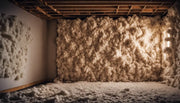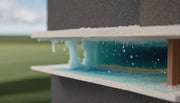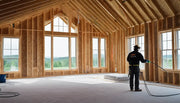Introduction to Tensile Strength in Insulation
In the realm of building and construction, tensile strength is a critical attribute of insulation materials, measuring their capacity to resist breaking under tension. This property is not merely a technical specification but a cornerstone of insulation performance, ensuring materials can endure mechanical stress, maintain their integrity, and effectively contain energy. In the UK, where insulation must perform amidst diverse weather conditions, understanding the interplay between tensile strength and insulation effectiveness is essential. High tensile strength in insulation guarantees durability, safeguards against energy losses, and contributes to the structural robustness of buildings and systems, making it an indispensable factor in the pursuit of efficient and reliable construction.
Defining Tensile Strength and Its Significance
When we delve into the world of construction and industrial materials, one term frequently emerges as a measure of quality and reliability: tensile strength. Tensile strength represents the material's resistance to breaking under tension. It's the maximum amount of tensile stress that a material can withstand before failure. This is a crucial property for any material, as it essentially determines how well the material can handle forces trying to pull it apart.
For insulation materials, tensile strength is not just a technical specification; it’s a linchpin of performance. An insulation material with high tensile strength can maintain its shape and effectiveness over time, even under mechanical stress and strain. This means that buildings and systems insulated with such materials are better protected against energy losses and external influences, leading to enhanced efficiency and durability.
The Interplay Between Tensile Strength and Insulation Performance
In the context of insulation, tensile strength plays a pivotal role in how insulation performs under different conditions. The right balance between flexibility and strength ensures that insulation materials can expand and contract with temperature fluctuations without cracking or becoming deformed. This is particularly important in the UK's variable climate, where materials must cope with a wide range of temperatures and weather conditions.
| Factor | Impact on Insulation | Additional Details |
|---|---|---|
| High Tensile Strength | Prevents material deformation, ensuring longevity | Resists mechanical stress, maintaining integrity |
| Low Tensile Strength | Leads to cracks and gaps, reducing efficiency | Prone to damage under load or stress |
| High Thermal Conductivity | Reduces insulation effectiveness | Allows heat to pass through easily |
| Low Thermal Conductivity | Enhances insulation performance | Prevents heat transfer, maintaining temperature |
| Moisture Resistance | Prevents water absorption, protecting insulation | Reduces risks of mold and structural damage |
| Susceptibility to Moisture | Increases risk of water damage and insulation degradation | Can lead to mold growth and efficiency loss |
| UV Resistance | Protects against degradation from ultraviolet radiation | Extends lifespan in exposed environments |
| UV Sensitivity | Leads to material breakdown and reduced effectiveness | Requires additional protective measures |
| Fire Resistance | Prevents fire spread and maintains structure in fire | Critical for safety in high-risk areas |
| Flammability | Increases fire hazard, compromising safety | Requires strict safety standards and materials |
| Eco-friendliness | Reduces environmental impact, sustainable for long-term use | Important for green building practices |
| Environmental Harm | Contributes to pollution and environmental degradation | Negatively impacts sustainability goals |
The relationship between tensile strength and insulation performance is a harmonious one. High tensile strength reflects a material's ability to resist the forces that can cause it to become stretched or elongate to the point of failure. A robust insulation material will not only protect the structure from external elements but also contribute to the building's overall structural integrity.
In practical terms, when we choose insulation materials for a project, we're looking beyond just the thermal properties. We need to consider how the material will hold up during installation and throughout its lifespan. Materials with sufficient tensile strength can withstand the rigors of installation, such as pulling and stretching, without sustaining damage. This ensures that the material's thermal properties remain intact, and the insulation continues to perform optimally.
Overall, the tensile strength of insulation is a critical factor that we cannot afford to overlook. It's what gives insulation its resilience and ensures that our investments into energy efficiency and building integrity stand the test of time. By understanding and respecting the role of tensile strength in insulation materials, we can make informed decisions that lead to sustainable and reliable construction practices.
Understanding Tensile Strength
The Science Behind Tensile Strength
Tensile strength is a fundamental property rooted in the molecular and structural composition of a material. At the atomic level, it's the chemical bonds between atoms that contribute to a material's tensile strength. In polymeric insulation materials, such as foam pipe insulation, the length and arrangement of polymer chains play a vital role. When these chains are longer and more tightly interlinked, the material tends to exhibit higher tensile strength.
Metals, on the other hand, rely on the metallic bonds and the crystalline lattice structure to provide tensile strength. For instance, insulation cladding, often made of aluminum or stainless steel, has a high tensile strength that makes it resistant to tearing and puncture when applied to insulation materials.
| Material Type | Bond Type | Tensile Strength Characteristic |
|---|---|---|
| Polymeric | Covalent and secondary | Flexible with varying tensile strength |
| Metallic | Metallic | Generally high tensile strength |
| Ceramic | Ionic and covalent | High tensile strength, but brittle |
| Composite | Various (hybrid) | Varies; often high strength-to-weight ratio |
| Glass | Ionic and covalent | Brittle; moderate to high tensile strength |
| Wood | Covalent and hydrogen | Varies; generally good in tension along the grain |
| Textile | Hydrogen and van der Waals | Low to moderate tensile strength, highly flexible |
| Rubber | Covalent (cross-linked) | Very flexible, low tensile strength |
Measuring Tensile Strength: Methods and Metrics
To ensure consistency and reliability in material performance, tensile strength is measured using standardized tests. One common method is to use a tensile test machine that pulls the material until it breaks, recording the maximum force applied. This force is then divided by the cross-sectional area of the material to calculate the tensile strength, typically expressed in megapascals (MPa) in the UK.
The metrics obtained from these tests are crucial for manufacturers and end-users alike, ensuring that the insulation materials meet the required specifications for their intended application. For example, rubber pipe insulation must maintain a balance between tensile strength and elasticity to conform to pipework while resisting wear and tear.
The Role of Tensile Strength in Material Durability
Material durability is often synonymous with tensile strength. A material with high tensile strength is less likely to succumb to the stresses of everyday use, which means it can maintain its integrity over a longer period. In the insulation industry, durability is not just about longevity but also about maintaining thermal performance. A breach in insulation due to low tensile strength can lead to significant energy losses.
Durability also translates to cost savings. Insulation materials with higher tensile strength might have a higher initial cost, but their extended lifespan can offset this by reducing the frequency of replacements and maintenance. When considering high-temperature insulation, for instance, the ability to withstand both thermal and mechanical stress is imperative for maintaining performance in extreme conditions.
Tensile Strength Standards for Insulation
Overview of Tensile Strength Standards in the Insulation Industry
The insulation industry is governed by a range of standards and regulations that specify minimum tensile strength requirements. In the UK, British Standards (BS) and European Norms (EN) are often used to benchmark these properties. For various insulation materials, including fibreglass insulation and mineral wool insulation, standards such as BS EN 13162 provide clear guidelines on tensile strength and other mechanical properties.
| Standard | Description | Relevance to Insulation |
|---|---|---|
| BS EN 13162 | Thermal insulation products for buildings | Sets out requirements for tensile strength in insulation materials |
Importance of Adhering to Tensile Strength Requirements
Ensuring that insulation materials meet or exceed these standards is not merely a compliance issue; it is a matter of safety, efficiency, and performance. Adhering to tensile strength requirements means that the products are fit for purpose and capable of withstanding the environmental and mechanical demands placed upon them.
In the UK, for instance, buildings must meet certain energy efficiency criteria, and using insulation materials that conform to tensile strength standards is a key component in achieving these criteria. It also serves to protect consumers, giving them confidence that the products they are using in their projects are safe, reliable, and will perform as expected over time.
Types of Insulation and Their Tensile Strength Properties
Comparative Analysis of Tensile Strength in Various Insulation Materials
The tensile strength of insulation materials varies widely, influenced by their inherent properties and manufacturing processes. Let's consider a selection of commonly used insulation materials and their typical tensile strength values:
| Insulation Material | Typical Tensile Strength (MPa) | Main Applications |
|---|---|---|
| Fibreglass | 100 - 1000 | Roofs, walls, and floors |
| Mineral Wool | 10 - 100 | Fire protection, acoustic control |
| Polyurethane Foam | 30 - 60 | Walls, roofs, and some flooring applications |
| Phenolic Foam | 60 - 130 | High-performance insulation applications |
| PIR (Polyisocyanurate) | 100 - 200 | Floors, walls, and roofs |
Materials like fibreglass pipe insulation are renowned for their high tensile strength, making them suitable for a range of applications where durability is key. On the other hand, mineral wool insulation, while offering lower tensile strength, is widely used for its fire-resistant and acoustic properties.
The tensile strength of PIR (Polyisocyanurate) boards and phenolic insulation is often higher than that of other foam insulations, which makes them particularly suited for areas where structural integrity is crucial, such as load-bearing floors.
Factors Affecting the Tensile Strength of Insulation
Material Composition and Its Impact on Tensile Strength
Material composition is a primary factor that dictates the tensile strength of insulation. The molecular structure, the presence of fillers, and additives all contribute to the mechanical properties of the material. For example, polyethylene insulation includes a simple structure of repeating ethylene units, which gives it flexibility but limits its tensile strength when compared to more complex polymers.
In the case of fibreglass insulation, the glass fibres are bound together with a resin; the type and amount of resin can significantly affect the tensile strength of the final product. Additives can also have a reinforcing effect, as seen with elastomeric materials that incorporate reinforcing fabrics or meshes to enhance their tensile strength.
Environmental and Operational Factors Influencing Tensile Strength
The environment plays a substantial role in the performance of insulation materials. Factors such as temperature, humidity, and exposure to chemicals can all impact tensile strength over time. For instance, EPDM rubber is known for its excellent resistance to weathering, which helps maintain its tensile strength in harsh external environments.
Operational factors, including mechanical loading and cyclic stresses, also influence tensile strength. Insulation materials may be subject to compression, tension, and shear forces during their service life. In industrial settings, where insulation may be exposed to vibrations and repeated thermal cycles, materials like rockwool insulation are preferred for their ability to retain tensile strength under such conditions.
| Environmental Factor | Effect on Tensile Strength | Example Material |
|---|---|---|
| Temperature fluctuations | Can cause expansion and contraction, affecting tensile strength | EPDM Rubber |
| Humidity | May degrade certain materials, reducing tensile strength | Mineral Wool |
| Chemical Exposure | Can weaken the material structurally | Phenolic Foam |
Overall, the selection of insulation material must be aligned with the specific tensile strength requirements of the project, taking into account not only the material composition but also the environmental and operational factors that will impact its performance over time.
Application and Implications of Tensile Strength in Insulation
Installation Considerations: How Tensile Strength Influences Insulation Practices
The tensile strength of insulation materials directly influences installation practices and methodologies. Materials with higher tensile strength, such as certain insulation sheets or insulated valve jackets, offer more resistance to tearing or stretching, allowing for a quicker and more robust installation process. Installers can handle these materials with less concern for accidental damage during fitting.
Conversely, materials with lower tensile strength require a more delicate approach to avoid tears or deformation that could compromise the insulation's effectiveness. This often necessitates additional care, time, and sometimes even special tools or techniques to ensure the material remains intact and performs as expected.
| Insulation Material | Installation Consideration |
|---|---|
| High Tensile Strength | Can withstand rougher handling and stretching |
| Low Tensile Strength | Requires delicate handling to prevent damage |
The Role of Tensile Strength in Insulation Longevity and Performance
Insulation's primary role is to maintain a stable internal environment by reducing heat transfer. The longevity and performance of insulation are therefore paramount to its overall effectiveness. Materials with high tensile strength, such as PIR boards or polyurethane insulation, are less likely to degrade over time due to mechanical stresses, ensuring they maintain their insulative properties longer.
Additionally, the tensile strength can impact the ability of insulation to resist other forms of wear, such as pest infestation or the accumulation of moisture. For instance, rockwool insulation not only has good tensile strength but is also known for its resistance to mold and mildew, contributing to its durability in damp or humid conditions.
| Longevity Factor | Impact on Performance | Insulation Example |
|---|---|---|
| Mechanical Stress | High tensile strength materials will perform better under stress | Fibreglass Insulation |
| Environmental Resistance | Resistance to moisture, pests, and chemicals maintains performance | Rockwool Insulation |
Key Takeaways
Understanding tensile strength is essential when selecting and installing insulation materials. The implications of tensile strength encompass the overall durability, installation methodology, and long-term performance of the insulation. Here are the key points to remember:
- Tensile strength is a critical factor in the selection of insulation materials, influencing their ability to withstand mechanical stresses and maintain insulative properties.
- Installation practices must be tailored to the tensile strength of the materials being used to prevent damage and ensure optimal performance.
- The longevity of insulation is heavily reliant on its tensile strength, which impacts how well it can resist environmental and operational factors over time.
- Standards and regulations in the insulation industry provide benchmarks for tensile strength, ensuring materials meet safety, efficiency, and performance criteria.
By prioritizing tensile strength in the selection of insulation materials, we ensure that the buildings and systems we insulate are protected, efficient, and sustainable for the long haul. Whether it's a residential home or a high-temperature industrial setting, the right insulation with the appropriate tensile strength can make all the difference.
Conclusion
In conclusion, tensile strength is a vital attribute that plays a significant role in the efficacy of insulation materials. From guiding installation procedures to determining the material's resilience over its lifespan, tensile strength is a key consideration in the insulation industry. By understanding and adhering to tensile strength requirements, we can assure the longevity and performance of insulation systems, ultimately contributing to energy efficiency and structural integrity. Whether for thermal regulation, acoustic control, or fire protection, the tensile strength of insulation materials is an indispensable factor in building and maintaining sustainable environments.


